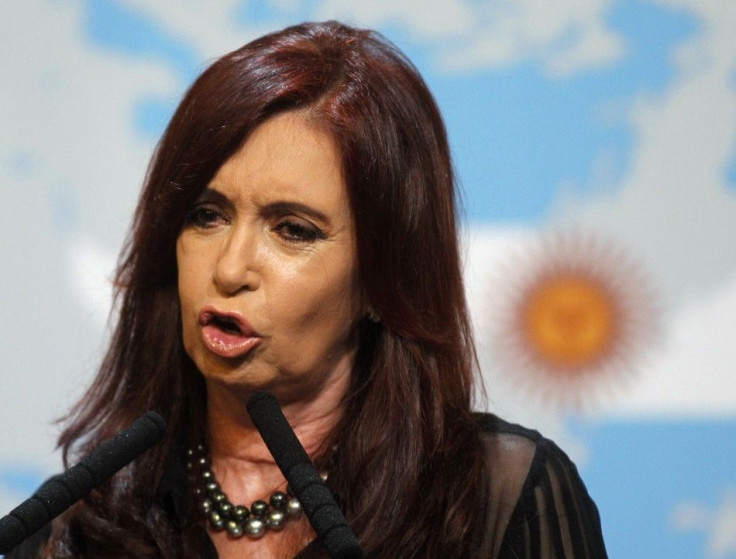Repsol Demands $10.5B Over Argentine Threat To Seize YPF

Spain's Repsol YPF SA oil and natural gas company vowed Tuesday to fight Argentina's plans to nationalize Repsol's large Argentine unit, and Spain's government also voiced concerns about the plans.
Repsol's criticism of the plans came after Argentine President Christina Fernandez de Kirchner said she sent a bill to federal lawmakers that if passed will let the government take control of YPF SA.
Calling the act a pillage, Repsol vowed to fight what company CEO Antonio Brufau characterized as an illegal and unjustifiable act during a press conference in Madrid.
The Fernandez administration claims the move is part of a drive to recover hydrocarbon sovereignty, according to a statement posted on Argentine government portal.
Brufau announced Repsol would seek arbitration and $10.5 billion in compensation as it scrambled to assay market concerns about the loss.
The Spanish government has also gotten involved, summoning Argentine Ambassador Carlos Bettini twice in recent days to hear the Spanish government's concerns over the move. The EU Commission also postponed a trade meeting with Argentina scheduled to take place later this week. Spanish Industry Minister.
Meanwhile, Repsol's share price declined Tuesday morning by 4.7 percent as analysts cut recommendations. Respol's ability to receive compensation for the asset seizure is a key uncertainty. Under Kirchner's plan, the company would still retain a 6 percent stake in YPF, down from its current 57 percent. Control of 51 percent of the unit will be divided between central and regional governments.
Grupo Patersen, owned by the Eskenazi family, owns a 25.46 percent stake in YPF, bought with a $1.9 billion loan from Repsol. Reuters reported that Brufau said Patersen would have to negotiate payments on the loan, but that everything now is under a massive question mark.
Fernandez, who won re-election in October with a comfortable majority, has accused foreign oil companies of not boosting output, forcing the country to double fuel imports last year. In a speech on Monday, the president claimed that recovering control of state energy assets was recovery of sovereignty. For its part Repsol says it is being made the scapegoat to Argentina's own failed government policies.
In 2008 the president seized $24 billion in private pension funds and changed central bank rules that increase the amount of money that can be tapped to manage the country's spiraling debt. The government has also sought to curb capital flight by tightening its grip on the exchange markets and implemented greater restrictions on imports. Bloomberg reported that the country's borrowing cost has surpassed Venezuela's to become No. 1 in the region.
Going forward, you are going to see a severe retrenchment of external investors in looking at Argentina, Enrique Alvarez, head of Latin American research at IDEAglobal, told Marketwatch.
© Copyright IBTimes 2024. All rights reserved.






















